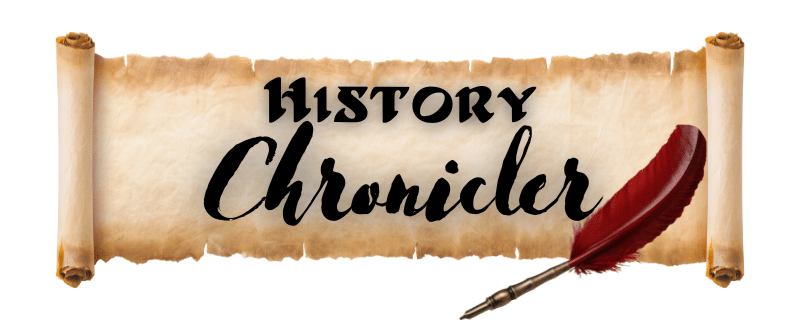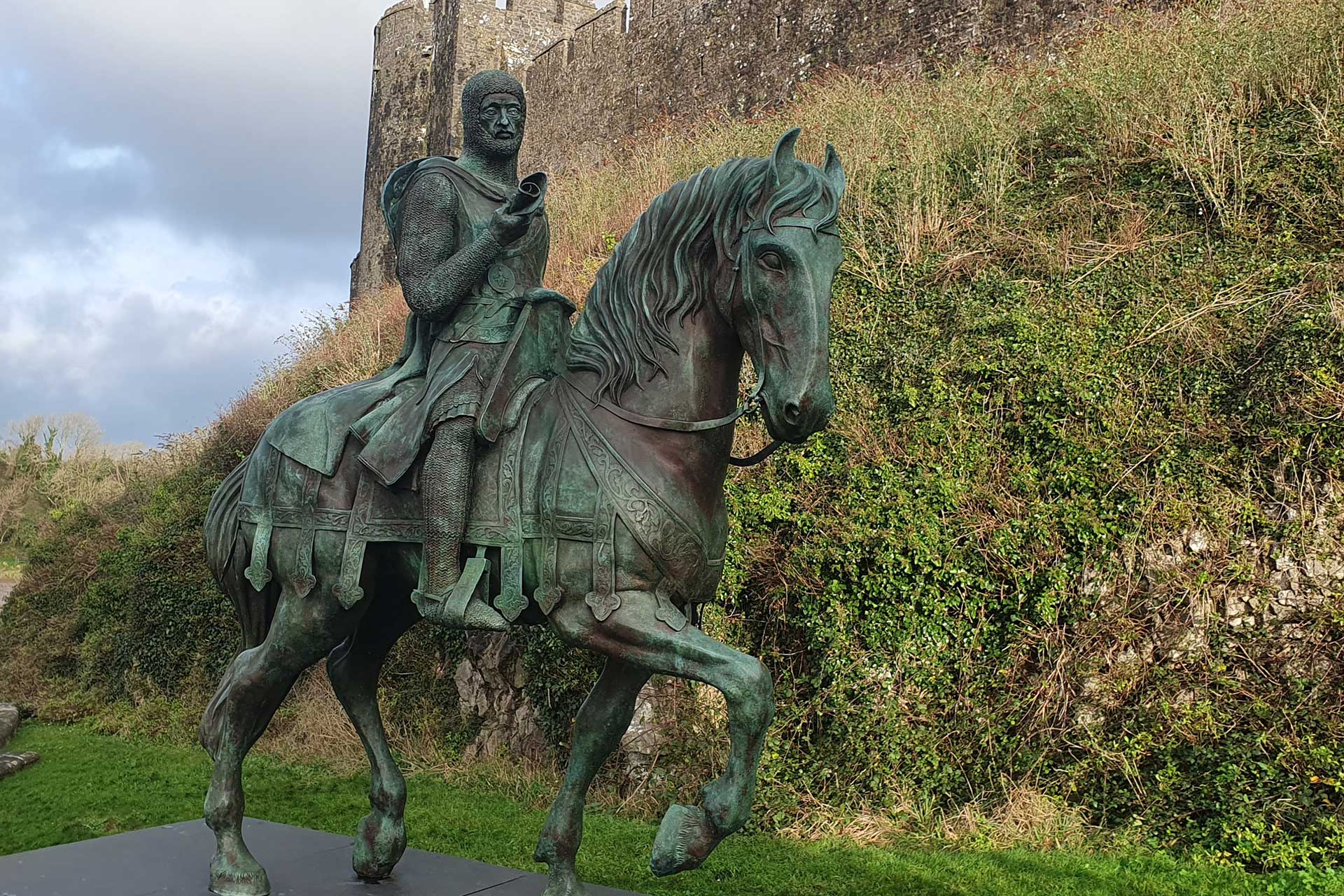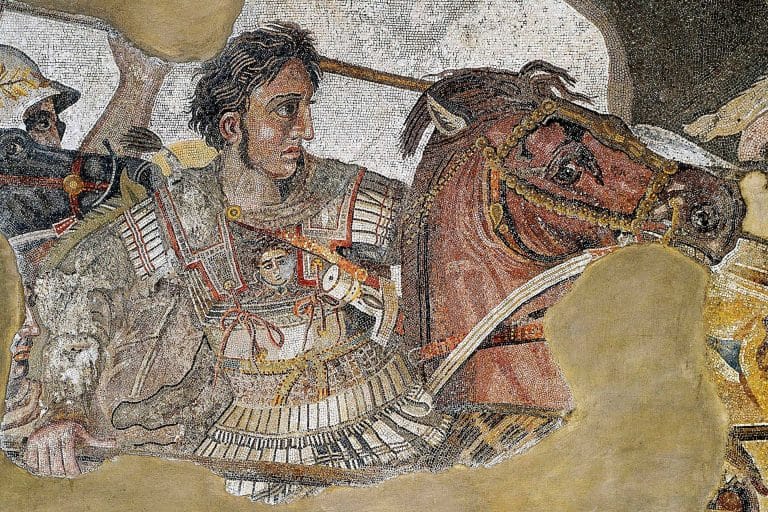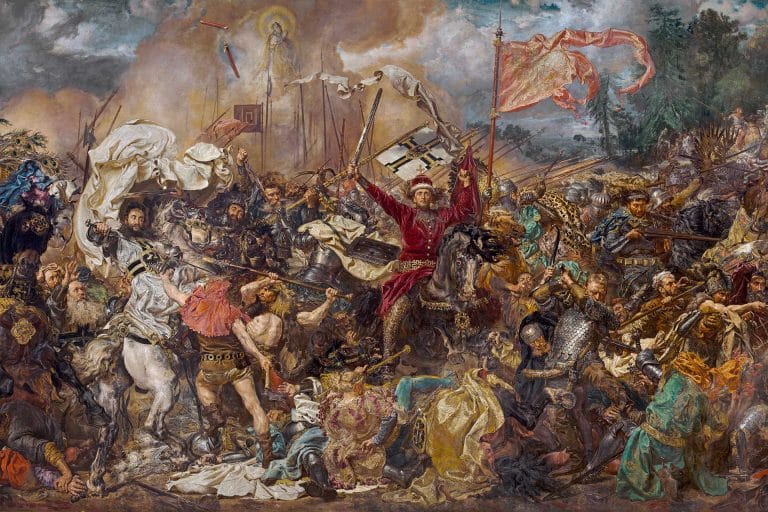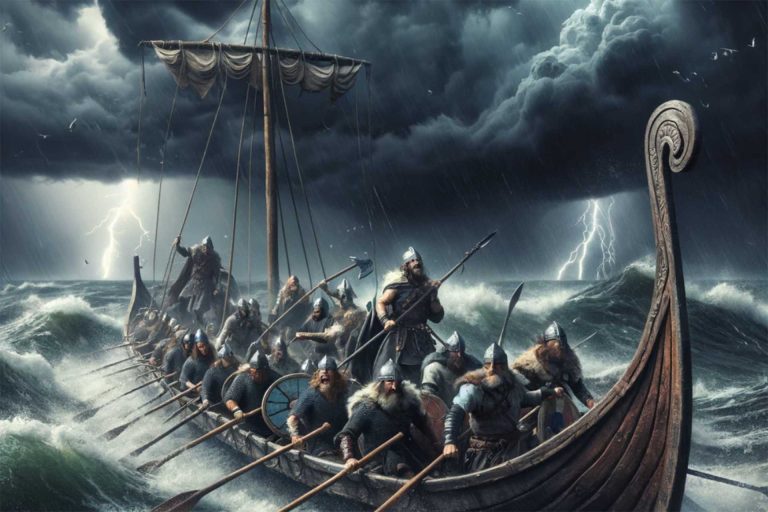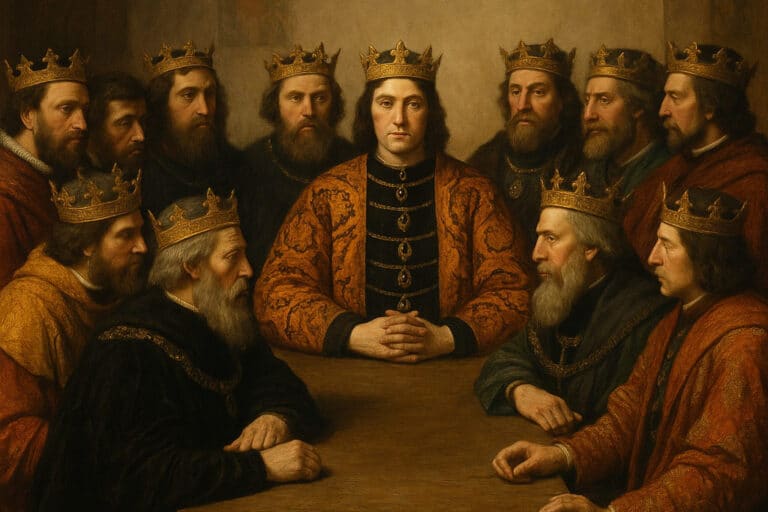8 Tales from the Life of William Marshal- England’s Greatest Knight
Often hailed as England’s greatest knight, William Marshal lived a life that reads like an epic medieval saga. Born in 1147, Marshal’s journey from a landless younger son to a revered statesman and warrior showcases a blend of chivalry, loyalty, and relentless ambition. His battlefield prowess and strategic acumen earned him the respect of kings and commoners.
Throughout his long career, Marshal navigated the treacherous waters of medieval politics, surviving multiple reigns and leaving an indelible mark on the annals of English history. This article delves into nine captivating tales that highlight the bravery, cunning, and enduring legacy of William Marshal, the quintessential knight of the Middle Ages.
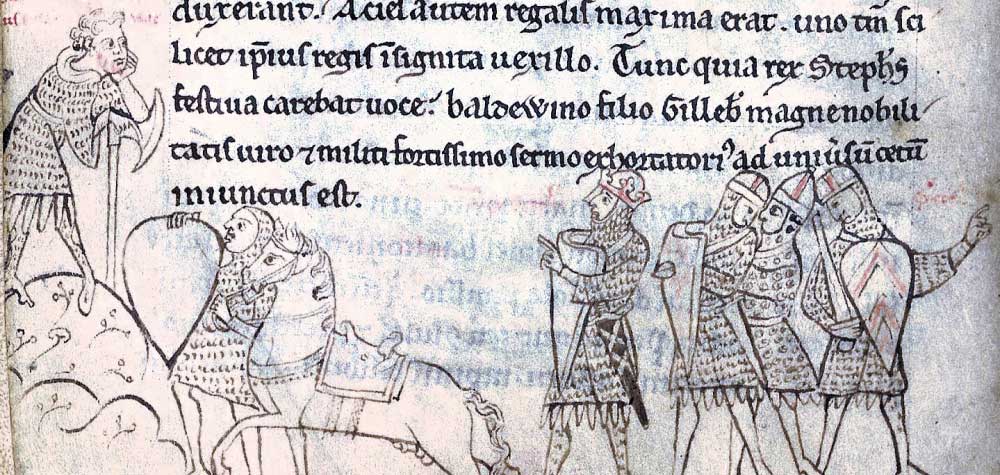
Held Hostage by King Stephen
In 1152, during the height of the civil war known as “The Anarchy,” young William Marshal’s life took a dramatic turn. His father, John Marshal, had switched allegiance from King Stephen to Empress Matilda, leading to a siege on Newbury Castle by Stephen’s forces. To ensure John’s compliance in surrendering the castle, King Stephen took William as a hostage. Despite the grave threat to his son’s life, John Marshal seized the opportunity to fortify the castle and summon Matilda’s supporters.
King Stephen’s ultimatum to surrender or witness his son’s execution was met with John’s chilling indifference. John famously retorted, “I still have the hammer and the anvil with which to forge still more and better sons!” The shocking disregard for William’s life left Stephen unable to follow through with his threat. Instead, a dramatic but ultimately empty gesture was made to launch William towards the castle using a pierrière.
Though spared immediate harm, William remained a captive for several months. His release came with the Treaty of Winchester in 1153, which concluded the civil strife and allowed William to return to his family, forever marked by this early brush with danger and royal intrigue.
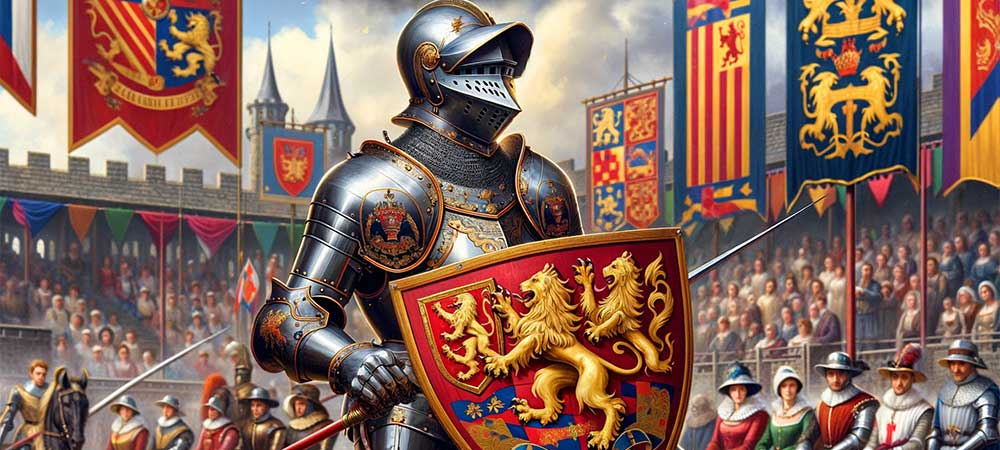
Champion of the Tournament Circuit
In 1167, William Marshal’s life took a pivotal turn when he participated in his first tournament, sponsored by William de Tancarville. This event began his illustrious career in the medieval tournament circuit. Unlike battles, tournaments were staged events where knights could demonstrate their combat gallantry and calculated insight. Marshal excelled, quickly gaining a reputation for his skill and bravery. These tournaments were a test of martial abilities and a means to earn wealth and prestige, both of which Marshal garnered in abundance.
Marshal’s success in the tournament circuit was unparalleled. He won numerous jousts and melees, proving his mettle time and again. His victories brought him significant financial rewards and the admiration of his peers. This period of his life was instrumental in honing the skills that would later define his legendary status as a knight. Through these competitions, Marshal showcased physical strength and a keen mind, solidifying his position as one of the most formidable knights of his time.
His tournament triumphs were evidence of his relentless drive and exceptional talent, laying the foundation for his future exploits on and off the battlefield.
The Rescue of Queen Eleanor from Guy de Lusignan
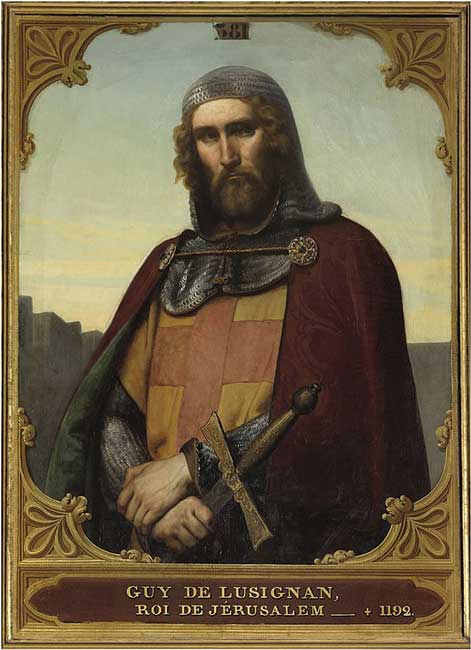
In 1168, William Marshal found himself in the service of his uncle, Patrick, Earl of Salisbury. During this time, Patrick was tasked with escorting Queen Eleanor of Aquitaine through her province. As they traveled near the border of Aquitaine, they were ambushed by Guy de Lusignan, who aimed to capture and possibly forcefully marry the queen. In the ensuing chaos, Patrick was killed, Queen Eleanor managed to escape unharmed, and William was wounded in the thigh and captured. This event tested William’s resilience and grit.
Held prisoner in a Lusignan castle, William’s condition was dire due to his wound. Remarkably, an unknown benefactor in the castle took pity on the young knight, providing him with a loaf of bread and concealed clean linen bandages to treat his injury. This act of kindness likely saved his life, preventing a fatal infection. William’s courage and tenacity during this ordeal did not go unnoticed. Impressed by the stories of his bravery, Queen Eleanor ransomed him, integrating him into her household for the next two years. During this period, William honed his skills in tournaments, further solidifying his reputation as a paragon of chivalry and knightly virtue.
Loyalty to Young King Henry

William Marshal’s loyalty to Henry the Young King was unwavering, even amidst the turbulence of rebellion. Young Henry, the eldest son of King Henry II, was found in Marshal not just as a knight but also as a steadfast supporter. Despite the young king’s decision to rebel against his father in a bid for power, Marshal remained by his side, exemplifying the chivalric ideals of duty and loyalty. This allegiance was tested during the conflict, yet Marshal’s commitment never wavered, highlighting his deep sense of honor.
In 1183, as Henry the Young King lay dying from dysentery, Marshal’s dedication shone through. He stayed with the young prince during his final moments, providing comfort and support. After Henry’s death, Marshal took on the solemn duty of overseeing his burial.
This act of loyalty extended beyond life, showcasing Marshal’s profound respect and sense of duty to his liege lord. His actions during this period cemented his reputation as a knight of unparalleled loyalty and integrity, qualities that would define his storied career and endear him to history as one of England’s greatest knights.
The Battle of Lincoln: William Marshal’s Defining Moment
In 1217, William Marshal’s tactical brilliance and leadership were pivotal at the Battle of Lincoln, a crucial conflict in the First Barons’ War. As Regent of England, Marshal led the English forces against the French, who sought to claim the throne for Prince Louis. The stakes were high, with the future of the young King Henry III and the stability of England hanging in the balance. Marshal’s experience and tactical expertise would prove decisive in this battle.
Marshal orchestrated a masterful plan to relieve the besieged Lincoln Castle, held by the loyalist forces. Understanding the importance of swift and decisive action, he divided his army and launched a multi-pronged attack that surprised the French forces. His leadership inspired the English troops, who fought with renewed vigor under his command. Marshal’s ability to adapt to the unfolding battle and exploit the weaknesses of the French forces showcased his unparalleled military acumen.
The English forces, bolstered by Marshal’s presence, broke through the French lines, leading to a rout. The victory at Lincoln was not just a military triumph but a turning point in the war. Marshal’s success secured the young King Henry III’s position on the throne and marked the decline of French influence in England. His actions at Lincoln reaffirmed his status as one of the greatest knights of his era, a leader whose loyalty and skill shaped the course of English history.
The Battle of Lincoln is another notch to William Marshal’s enduring legacy. His ability to lead, inspire, and strategize under pressure ensured a decisive victory, stabilizing the English crown. This battle highlighted his martial mastery and unwavering dedication to the realm, qualities enshrining him in history as England’s greatest knight.
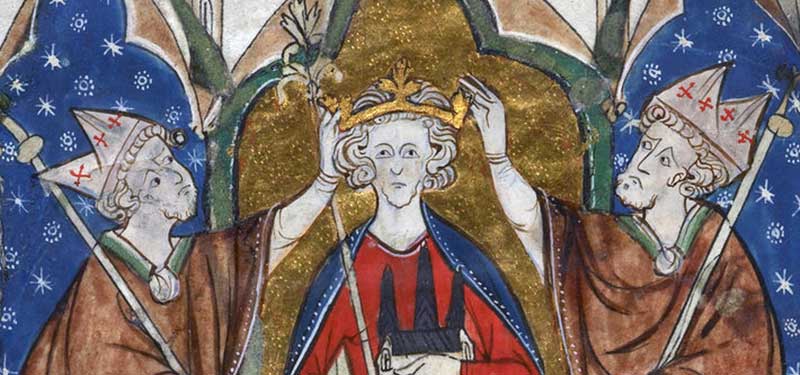
Regent for Henry III: William Marshal’s Stewardship
In 1216, following the death of King John, William Marshal was appointed regent for the young King Henry III. At a time when England was fraught with internal strife and external threats, Marshal’s leadership was instrumental in maintaining stability. His reputation as a wise and fair leader helped unite the kingdom’s divided factions, ensuring continuity for the English monarchy during this precarious period.
Marshal’s first significant act as regent was to reissue the Magna Carta, reaffirming the crown’s commitment to justice and the rule of law. This move helped pacify the rebellious barons and garnered widespread support for the young king. His diplomatic skills were crucial in negotiating peace and consolidating power, allowing him to focus on rebuilding the kingdom’s strength.
Under Marshal’s governance, England saw significant administrative reforms. He streamlined the royal household, strengthened the judiciary, and ensured the effective collection of revenues. These measures stabilized the economy and restored confidence in the monarchy. Marshal’s ability to balance firmness with fairness earned him the respect of nobles and commoners, cementing his legacy as a just ruler.
William Marshal’s regency for Henry III was marked by wisdom, courage, and an unwavering dedication to the realm. His stewardship during this critical time laid the foundation for the young king’s stable and prosperous reign. By his death in 1219, Marshal had ensured that England was on a path to recovery and growth, leaving a legacy of exemplary leadership and devotion to the crown.
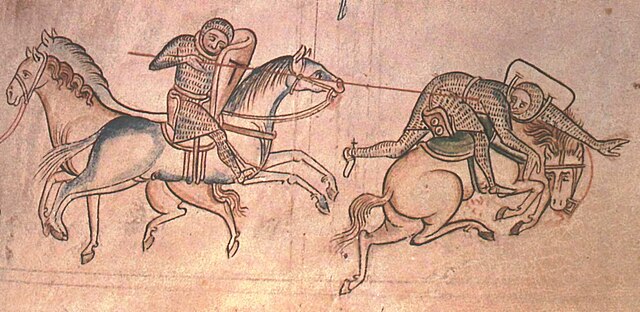
Trial by Combat Against Baldwin de Béthune

One of the defining moments in William Marshal’s illustrious career was his trial by combat against Baldwin de Béthune, a renowned knight. Trial by combat was a medieval judicial practice where two parties in a dispute fought to determine the outcome, believed to reflect divine judgment. This high-stakes duel was not just about physical strength but also about proving one’s honor and righteousness. Marshal’s victory in this combat solidified his status as a paragon of chivalry and martial prowess.
The dispute that led to the trial involved a complex issue of loyalty and land rights, with both knights claiming rightful ownership. Baldwin de Béthune was a formidable opponent known for his combat skills and noble lineage. The combat was a dramatic and intense affair, drawing significant attention from nobles and commoners alike. Both combatants displayed exceptional skill and bravery, but Marshal’s superior tactics and indomitable spirit ultimately secured his victory. His triumph was a personal achievement showcasing his unwavering commitment to justice.
This victory had far-reaching implications for Marshal’s reputation. It demonstrated his ability to uphold the values of knighthood under the most challenging circumstances. The respect and admiration he garnered from this encounter further enhanced his standing among his peers and solidified his position as a trusted and honorable knight. Marshal’s success in the trial by combat against Baldwin de Béthune became a celebrated episode, symbolizing his dedication to fairness and exceptional combat skills.
Through this victory, William Marshal proved his martial abilities and underscored his role as a defender of justice. His ability to emerge victorious against such a formidable opponent showcased his prudent mind and physical aptitude. This event, etched in the annals of chivalric lore, highlighted the qualities that made Marshal one of the greatest knights of his time, revered for his bravery, honor, and unwavering sense of duty.
Heroics at the Siege of Aumale

The Siege of Aumale is one of William Marshal’s most legendary feats of bravery and tactical brilliance. Tasked with defending a besieged castle with only a handful of knights, Marshal faced a formidable enemy force. Despite the overwhelming odds, his leadership and strategic insight turned the tide of battle. His ability to inspire and command his small garrison became an attestation to his exceptional skills as a warrior and leader.
Marshal’s defense at Aumale was characterized by clever use of the castle’s fortifications and innovative tactics. He maximized the limited resources, orchestrating sorties and counterattacks that kept the besieging force off balance. His ability to maintain the morale of his men under such dire circumstances was crucial, fostering a sense of unity and determination among the defenders. Each move was calculated, showcasing his mastery of medieval warfare.
The successful defense of Aumale not only thwarted the attackers but also solidified Marshal’s reputation as an unbeatable knight. News of his heroics spread quickly, enhancing his standing among allies and adversaries. His actions during the siege exemplified the chivalric ideals of bravery, honor, and unwavering duty, reinforcing his legacy as one of the greatest knights of his era. Eventually, reinforcements arrived, breaking the siege and forcing the enemy to retreat. Marshal’s resilience and tactical brilliance had bought enough time for help to arrive, ensuring the castle’s survival.
The conclusion of the Siege of Aumale with the arrival of reinforcements underscored Marshal’s effectiveness as a commander under pressure. This victory saved the castle and demonstrated his ability to outlast and outthink a superior force. The siege is a classic example of how strategic brilliance and leadership can overcome even the most daunting challenges, further cementing Marshal’s place in history as England’s greatest knight.
The Amazing Life of William Marshal
The life of William Marshal, England’s greatest knight, is a tapestry woven with extraordinary feats of valor, unwavering loyalty, and brilliance. His service to the crown earned him vast estates, including lands in England, Wales, and Ireland, securing his family’s legacy for generations. Throughout his storied career, Marshal served five English kings—Henry II, Henry the Young King, Richard I, John, and Henry III—each recognizing his unmatched prowess and steadfast dedication.
Marshal’s journey from a landless knight to a powerful regent is a testament to his indomitable spirit and chivalric ideals. His legacy immortalized through tales of heroism like the Siege of Aumale and his role as regent for Henry III, continues to inspire and define the very essence of knighthood. William Marshal’s life is not just a chronicle of personal achievement but a cornerstone of medieval English history, embodying the virtues of courage, honor, and loyalty.
